A forward-thinking joint research project between Communities at Work and the University of Canberra aims to improve educator well-being and happiness for the sector, and for education in Australia, more broadly.
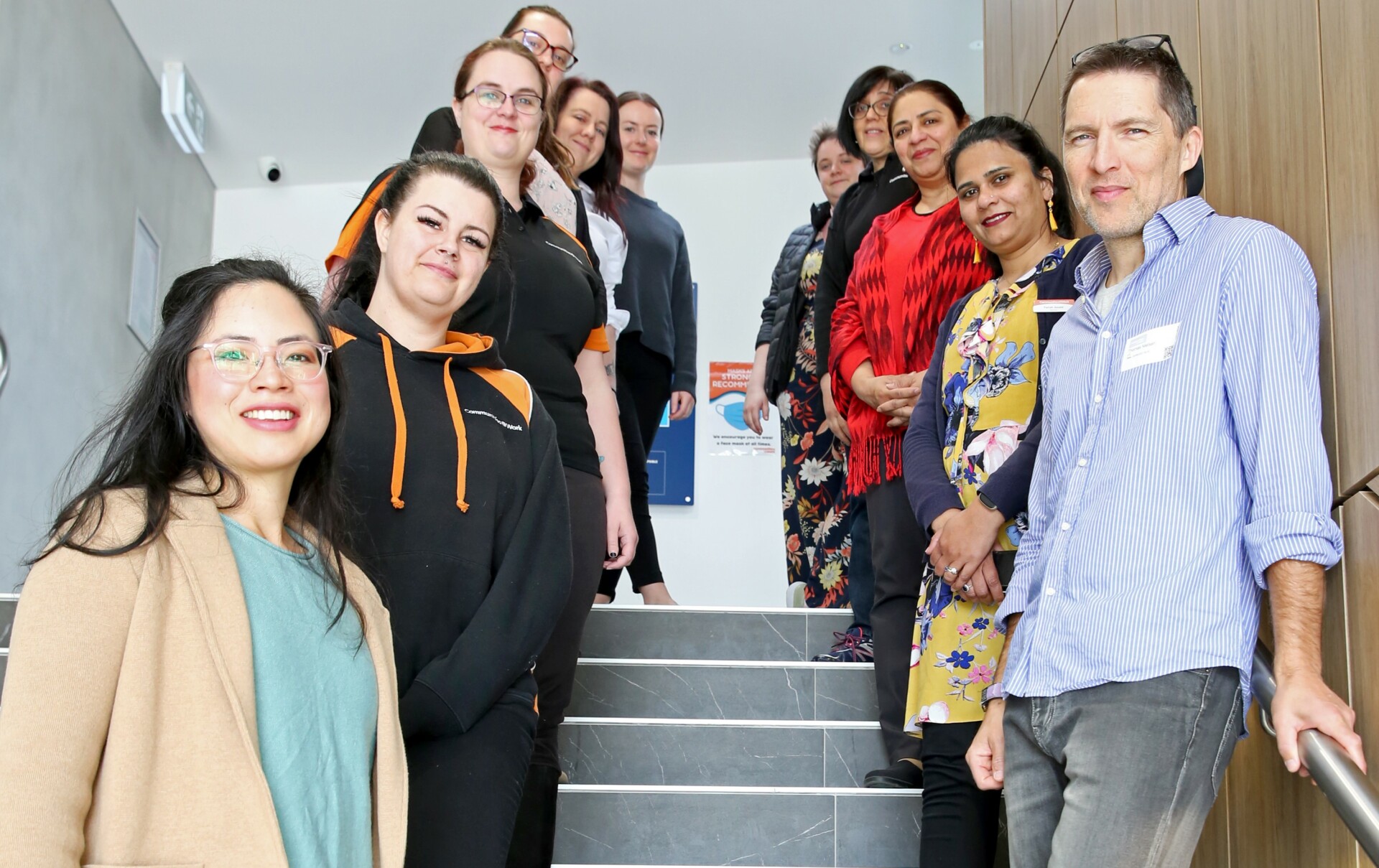
Most of us have seen or heard about how overworked and stressed our hardworking educators are, thanks to the double whammy of COVID-19 and a severe workforce shortage across the country. For many educators, their mental health and well-being is suffering, forcing some to consider leaving a sector and role they love.
So what can we do to help them? For starters, more federal and state funding to better support the early childhood sector in ways that reflect the important role our educators play in a child’s early development, and which recognise and value their professional knowledge, skills, and well-being. As Canberra’s largest private employer of early childhood educators, Communities at Work is taking the initiative and partnering with the University of Canberra on an innovative research project that it hopes will help its educators – and ultimately others in the sector – find meaningful long-term happiness in their workplace.
We sit down with Thomas Nielsen and Jennifer Ma, researchers at the University of Canberra (UC), and with Kellie Stewart, Director of Children’s Services at Communities at Work, to learn more about this unique project that could change the education landscape.
What’s the aim of this research project, and how did the partnership come about?
Thomas, Associate Professor in Education at UC
This project is based on the Curriculum of GivingR. This educational well-being framework was developed by Jennifer and me after a decade of researching well-being education initiatives from around the world. It guides an organisation’s existing well-being policies and practices, and helps its staff build more resilience, wisdom and meaningful happiness in themselves and the young people they care for.
Interestingly, people who have meaningful happiness – rather than just pleasurable happiness – tend to have more resilience in the face of adversity, stress and trauma. Even the ancient Greeks realised this 2,500 years ago. They called it Eudaimonia – striving towards a life ‘well lived’ – where you use your virtues in the service of something higher than yourself.
Jennifer, Adjunct Assistant Professor at UC and Research Fellow in suicide prevention at the Australian National University
Maintaining our mental well-being can be a challenge for all of us, at any age. It’s been a particularly challenging time for educators and children over these last few years. As researchers in education and psychology, our aim is to find a way to help make a real difference for educators and students in the community through our work.
This project is very much focused on increasing people’s sense of meaning and connection using evidence-based principles synthesised from the research. We saw a strong alignment in partnering with Communities at Work because of their leading role in providing children’s services in the ACT and their focus on promoting social-equity outcomes via their community and volunteer-based services.
Kellie, Director of Children’s Services at Communities at Work
We were concerned about the impact of the educator workforce shortage and COVID-19 on our educators’ well-being. We want to support our educators to continue doing what they love. As an organisation, building this capacity is vital because if our educators are happy, this has important flow-on effects on the children and their families over the long term.
We felt this project would be a valuable addition to the health and economic support measures we already offer. For instance, we make their childcare fees as low as possible by providing our educators with a 95% childcare discount for their gap fee. They also have access to a range of health benefits such as rebates on fitness and exercise fees, free vaccination programs and an employee assistance program for both them and their families.
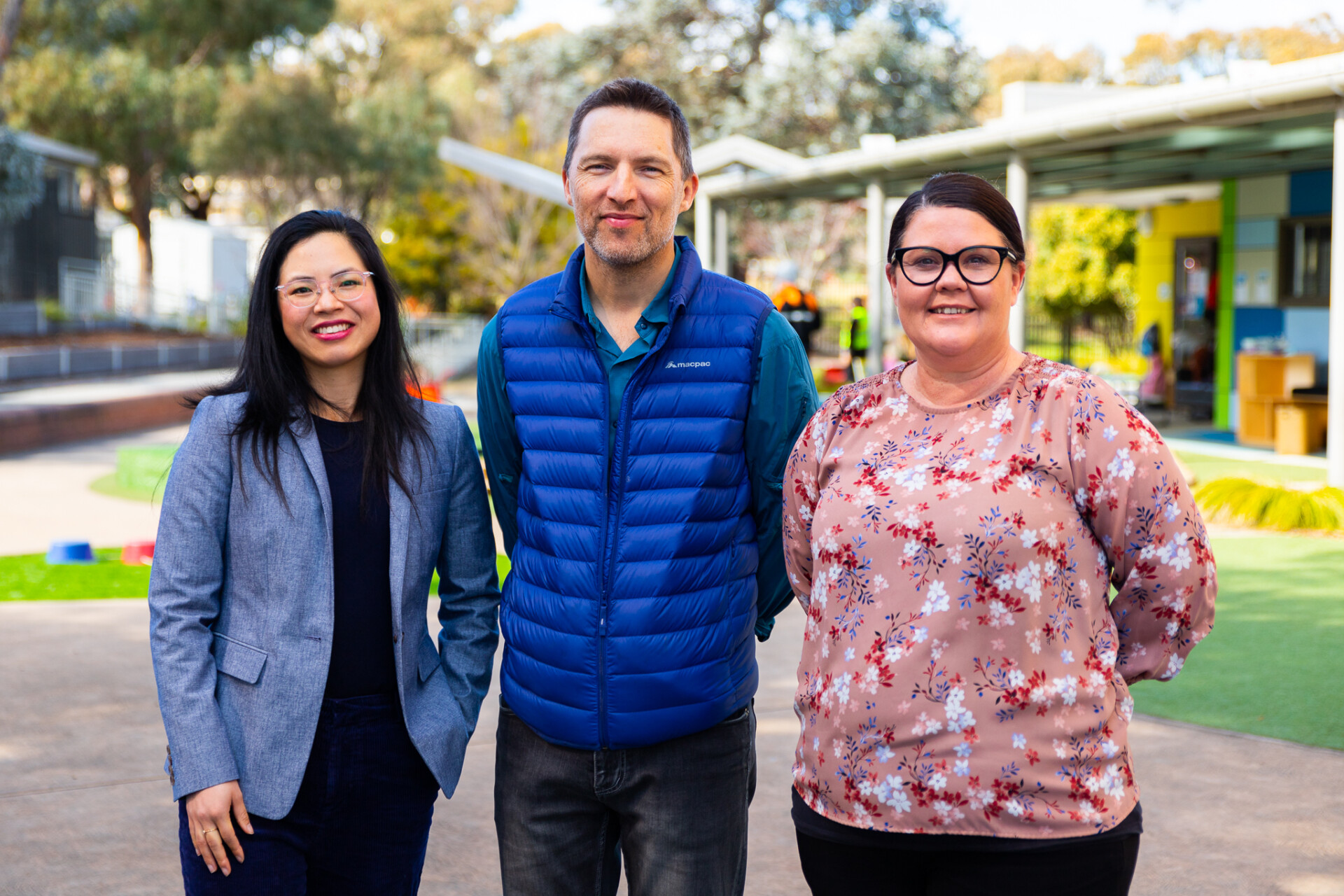
How have you collected the data to drive your research framework?
Jennifer
We’ve recently completed phase one of the project, which involved surveying 108 Communities at Work staff to find out about their mental health, their levels of resilience, and their psychological resources and strengths (including in the context of COVID-19). We also surveyed staff about what they have personally experienced and want to see done to promote well-being for them and the children under their care.
This will help us map out a baseline view of what well-being looks like at Communities at Work. For example, what are the key well-being challenges and goals for staff and children across the centres? Where and how can practice be embedded to better support these identified needs and goals? Our approach is to work closely with the educators through consultancy and collaborative processes. We want to create an open and safe space for dialogue around how evidence-based principles from research can be best translated into practice as envisioned by the educators. This approach values our early childhood educators as experts who bring invaluable knowledge and experiences when evaluating and further developing their practice.
Some key research findings from the baseline survey
Our workforce and their well-being
- Most of our workforce (at least those who participated in the survey) are young women who are working full-time and have spent most of their years in the profession here at Communities at Work.
- On average, our staff reported higher levels of psychological distress compared to the general population.
Feeling connected to our centre was important for helping educators feel professionally valued. An increased connection was related to decreased levels of psychological distress. However, it may be more challenging for staff to feel connected to their centre the longer they have been at Communities at Work.
Main challenges for Communities at Work early childhood educators’ well-being (as reported by staff):
- The professional/ organisational culture (e.g. time, pay, skills, communication in team, centre resources).
- Staffing shortages (leads to pressure to fulfil ratios/ workloads, hard to provide consistent quality of care).
- Meeting and managing expectations placed on them by other educators, families and government/ society.
- Experiencing mental or physical health problems (including contracting illness in the role).
Main challenges for children’s well-being (as reported by staff):
- Service quality (children impacted by staff shortages, low level of consistency, staff morale, Covid disruptions).
- Behaviour (children experiencing challenges with emotion regulation, resilience, social skills).
- Family background (eg. parental stress/ hardship).
- Health (children getting sick).
Staff awareness of well-being education policy and practice and what they would like to see happen
- Three-quarters of staff reported that they were aware of existing well-being education policies and practices to support their own and their children’s well-being. However, staff felt that engagement was much higher for those that supported the children’s well-being compared to their own.
- Staff wanted to see more:
- Professional learning and resources to support educators’ own mental health and well-being and help them support others with their mental health.
- Genuine understanding and communication within teams and the organisation.
- Better working conditions (e.g. pay, leave, managerial support, streamlining of documentation/roster/hiring/training processes, quality resources and incursions).
- More specific policies put in place.
- Staff acknowledged that any new well-being education content would have to be carefully considered in relation to their time, experiences and input, genuinely being supported by management, training needs, and available centre funding.
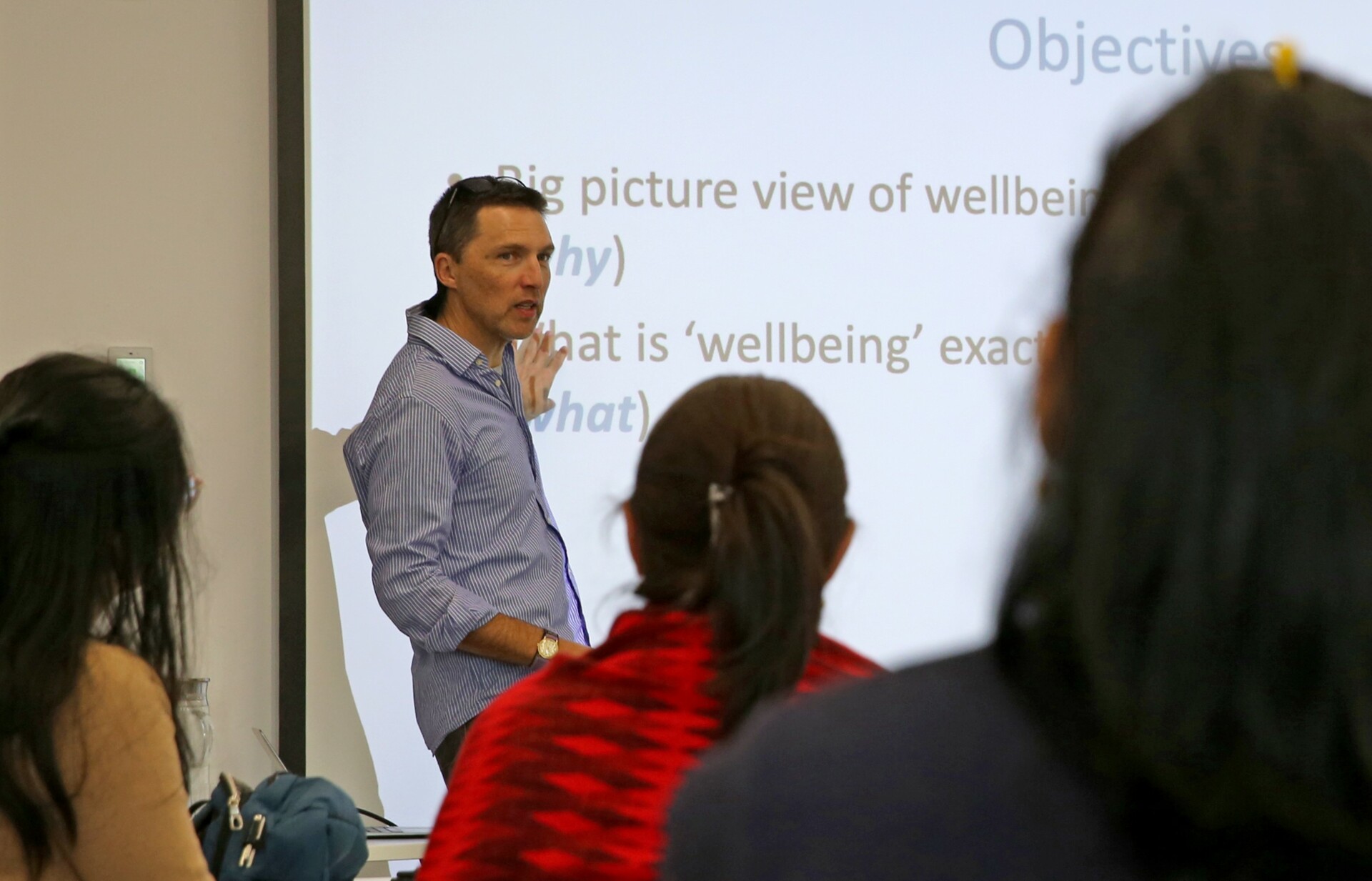
What have you learned from these survey results?
Thomas
The survey has confirmed what has been observed in educational settings around Australia over the last decade. It is not only children and students who struggle with stress and compromised well-being, but also our educators due to the unique challenges encountered in this profession.
Jennifer
Educators constantly feel like there are not enough staff ratios. There’s not enough time. There’s not enough payment for that time. How can they provide a consistent service with all these systemic, structural pressures – both ongoing and new? Burnout and staff retention are big issues.
Another thing that stands out is that an educator’s connectedness to their centre, or the service they’re working at, is highly related to how they feel in terms of their effectiveness as educators and their levels of psychological distress. This means that we can actively look at using connectedness as a pathway to promote well-being in staff. But of course, this connection within teams and in the organisational culture more broadly, has to feel meaningful and authentic to all.
Kellie
The survey revealed some of the same outcomes as our staff satisfaction survey: educators have been in highly stressed states over the last three years. They’ve been essential workers. They’ve worked throughout a pandemic environment without a break. They’ve had to change the way that they do things. They’ve had to deal with a critical workforce shortage.
These things are taking a toll on individuals. We hear what our educators are saying, and we want to do more to help them. We’re committed to their well-being as much as they’re committed to the well-being of children. That’s why we’re partnering on this project.
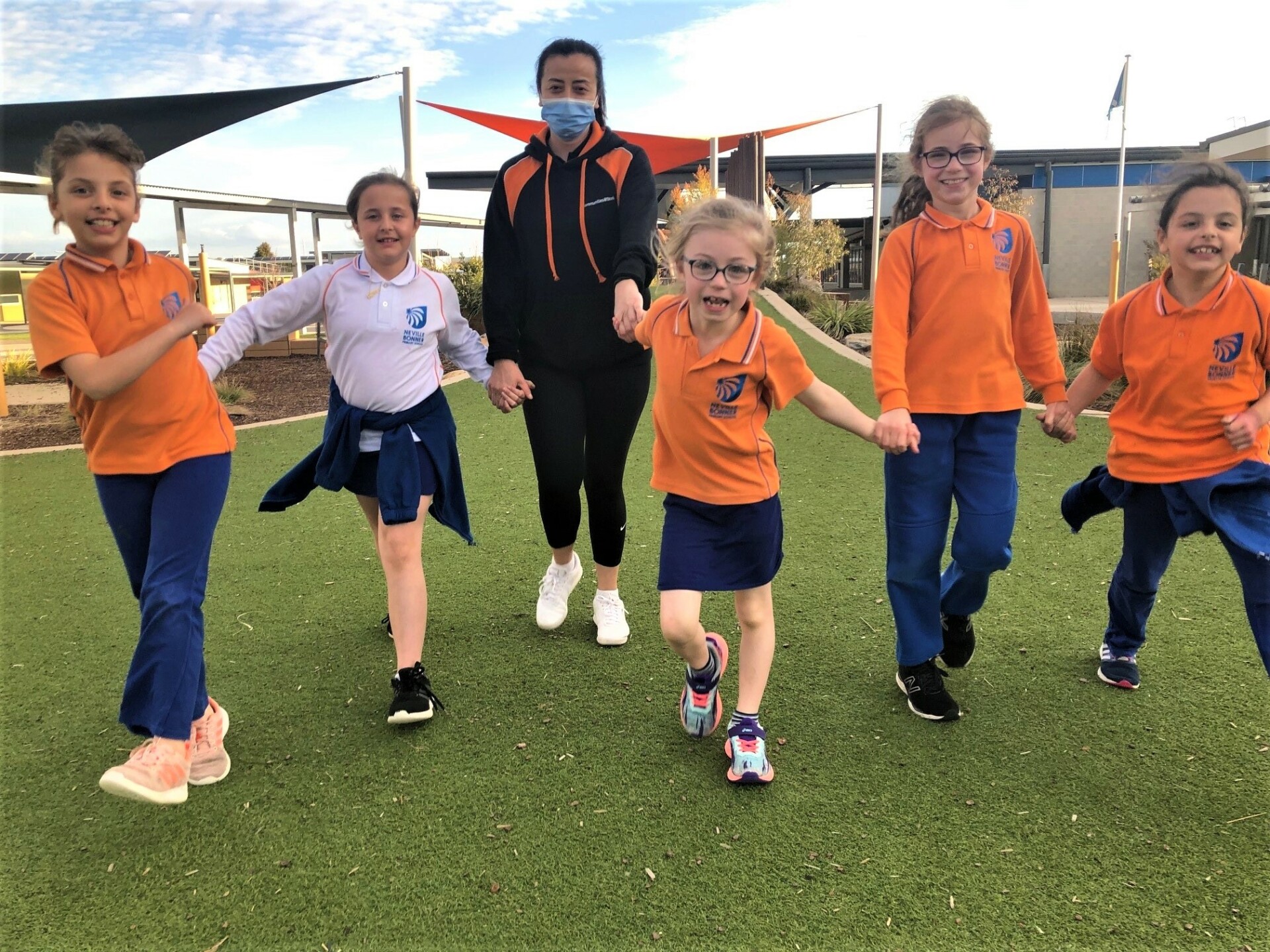
What’s the next step in the research project, and what impact could it have in the future?
Kellie
We have recently started the next steps in the project (in August 2022) and begun the professional dialogue between Communities at Work and the researchers. We are really looking forward to what will come next. This meaty part of the project will start making a hands-on difference to our educators. The professional development sessions will include professional discussions and critical reflection, and be an opportunity for the educational leaders to work collaboratively. The sessions will provide an opportunity to unpack challenges and well-being practices and inform improvements in this space.
Thomas
We’ve already had some really valuable conversations with the Communities at Work educational leaders to hear their thoughts on the initial findings and how this project can specifically support their centres, staff, and children. It has been interesting to hear that there is wide variation between the 12 centres in relation to size, resources, well-being challenges and needs.
We’ve started conducting the professional learning sessions with the educational leaders (approx. 14 hours). These sessions also function as collaborative workshops, where we work together to translate evidence-based well-being principles into practice and troubleshoot practical issues.
We don’t want this work to be a one-way process where the academics, or so-called experts, come in once or twice to provide standardised input to an organisation but then leave it at that. For the research and professional learning to have a sustainable impact for all involved, we feel it needs to be a collaboration or partnership where everyone makes the time and space to come together, with each of our individual knowledge and experiences, to reach a place of shared understanding.
We, the researchers, are also learning a lot from the practitioners on the ground. Even though I teach beginning teachers at the university, I’m not in a classroom every day. So, there’s a lot that I genuinely learn from working with educators. I’m hoping this collaborative approach will help to facilitate genuine dialogue, so that insights from my world of research are shared with and translated to the world of practice and vice versa.
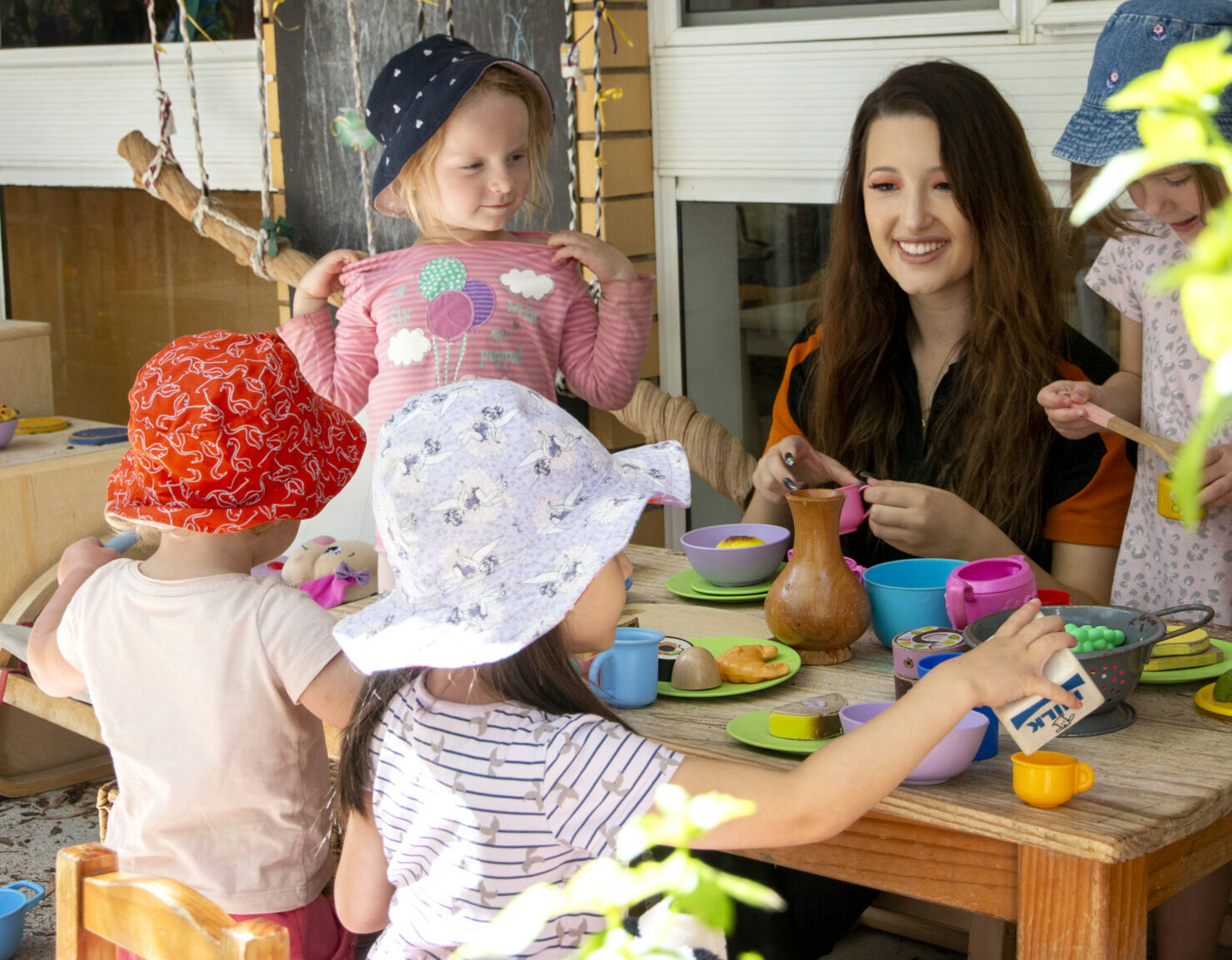
Time for structural change, not just words?
Thomas
I strongly believe that we need to critically re-evaluate our reliance on following certain educational models that do not place the same priority on education as a community service that supports the personal and professional development of its citizens to the same extent that others in the world have successfully done. In places like Scandinavia, for instance, education is valued and funded in a different way. This is not to say that we should all be like that, or that it is even feasible to replicate the Scandinavians directly. However, if we want to improve the well-being of our educators – and therefore students – we need to improve how we value them and their profession in our social and economic structures.
Perhaps this project, with Communities at Work as an early childhood case study, can help to shine the light on a new way forward and start a conversation about what this would mean for education in Australia more broadly.
It’s this potential for advocacy at this ‘big picture’ level for educators, children and their families that makes this research and project meaningful to everyone involved.
For more information on the Curriculum of GivingR visit: www.thomaswnielsen.net/.
Additional reading:
- RiotACT story on improving the early childhood workforce well-being.
- Canberra Times article on educators suffering high levels of stress.
- HerCanberra article on boosting educator well-being and happiness.
For more information on Communities at Work’s children’s services programs, visit: www.commsatwork.org/services/children-services

thanks for info